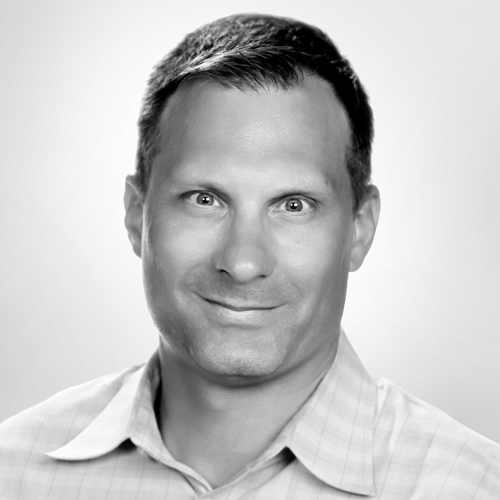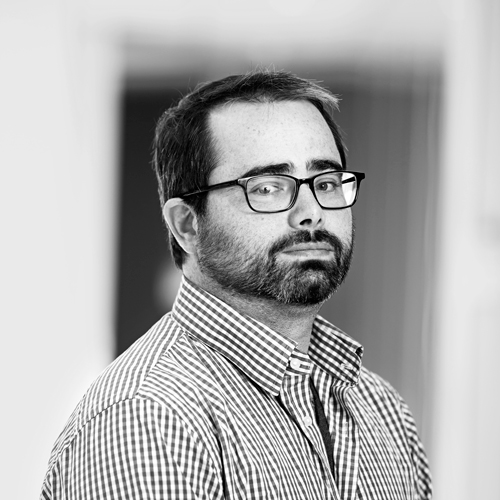PanAtlantic Exploration Company is a business that takes risks. Along with partners Lukoil and Petroci, PanAtlantic (named Vanco at the time) was the first consortium to drill a well offshore Côte d’Ivoire following the nation’s violent election crisis in late 2011.
A mature industry, oil and gas exploration exists virtually everywhere in the world where natural resources have been discovered and can be acquired. As a result, the higher-reward projects tend to be in higher-risk frontier markets—the kind on which Houston-based PanAtlantic focuses.
“There are inherent infrastructure, regulatory and geopolitical risks that stem from operating in developing countries, but the potential rewards of being among the first to find and develop frontier resources can be very high,” says Todd J. Mullen, vice president and general counsel of PanAtlantic, which conducts onshore and offshore oil and gas exploration in West Africa, South America, and the Black Sea. “You’ll drill some dry holes, you’ll deal with health and safety risks, and you’ll spend a whole lot of money not finding anything commercial, but the potential payoff can be significant.”
Regardless of where an energy company operates, there are risks associated with the industry itself, such as fluctuations in commodity prices and the cost of doing business. “Those risks can impact whether a project that was economically viable yesterday remains so tomorrow,” Mullen says, noting that PanAtlantic mitigates such risks by building in tolerances to ensure that within a certain band, a project is economically viable.
The other baseline risk PanAtlantic faces is the regulatory framework. “It’s a challenge wherever you work, but if you’re only working in one country or state, a homogeneous jurisdiction, there’s a certain stability to the challenge and how you manage it,” says Mullen. When a company works in many jurisdictions with many regulatory frameworks, as PanAtlantic does, the challenge becomes more complex. PanAtlantic overcomes it, says Mullen, by learning the ins and outs of many different regulatory frameworks, establishing a local presence, and engaging outside expert consultants in each jurisdiction.
Beyond the baseline risks are geopolitical risks that affect a company doing business in developing markets. “At the moment, there’s a lot going on geopolitically in terms of conflict as well as state-to-state relations,” Mullen says. “Navigating those issues can make places that otherwise are very interesting from an exploration perspective less appealing.”
Parts of West Africa, for example, have experienced government transitions in the past several years. In Côte d’Ivoire, one of those transitions didn’t go smoothly. Civil strife developed eventually into armed conflict when forces loyal to Laurent Gbagbo, president since 2000, refused to accept the results of the presidential election that was won by Alassane Ouattara. At times during the conflict, PanAtlantic had to press the pause button on some of its operations, suspending or moving activity while the situation worked itself out.
PanAtlantic has been fortunate, however, in that two current geopolitical risks of significance haven’t impacted the company. While the company does have a project in Ukraine, it’s been relatively inactive, so for the moment, the situation is status quo. Similarly, PanAtlantic has been relatively insulated from the Ebola outbreak because none of the countries in which it’s currently working are directly affected. But the company is aware that these situations could change at any moment. Should PanAtlantic revive operations in “the block” in Ukraine—as an exploration project is called—it will have to evaluate the viability of the project given the country’s tensions with Russia. And, PanAtlantic is carefully monitoring the Ebola outbreak, ensuring that countries in which it does work are addressing the situation with neighboring countries that may be affected.
In light of these geopolitical risks, protecting people is Mullen’s main focus. PanAtlantic has been fortunate not to have any kidnapping or hostage situations, which are a risk for companies doing business in certain developing countries, but it regularly monitors the potential risk. As for other safety issues, such as civil disturbance, the company has a health, safety, and environment function and works with both internal and external resources to assess and monitor all sorts of risks. Internal resources are particularly helpful, because the company’s business model is based on local staffing, allowing it to rely on employees’ assessments of what is happening on the ground. “In any potentially risky situation, corporate headquarters is in touch with local offices to ensure that we have a risk-mitigation plan in place [that is] up to mobilizing people into neighboring countries,” Mullen says.
Moreover, geopolitical challenges often present opportunities. “We believe we can compete on equal footing with companies that are much larger with much more capital at their disposal by taking on projects in which larger, more traditional companies either don’t see value or don’t have the organizational framework to capture,” Mullen says. “We look around the world at opportunities, and we don’t feel constrained in where we can go. We know that if we’re willing to take on some additional risk, we’ll find opportunities that other more conservative enterprises don’t use.”


